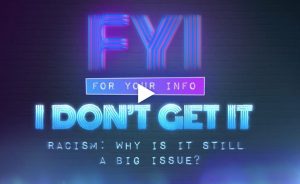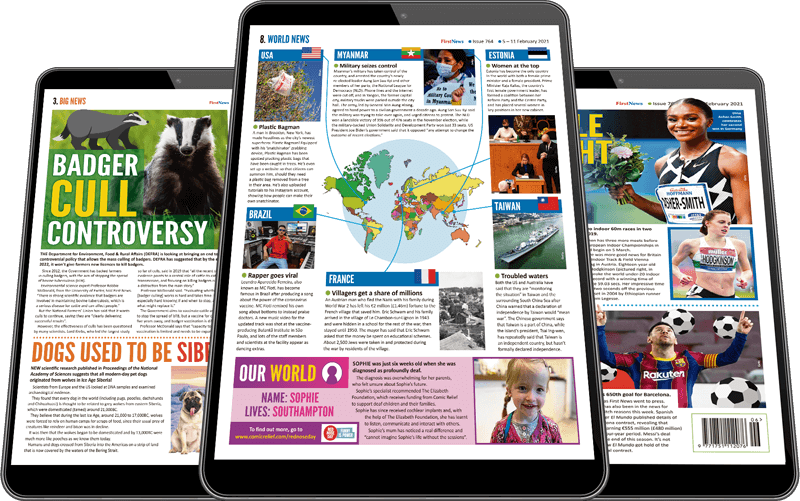
How to talk to kids about racism
Depending on your ethnicity and where you live, the conversations you have with your children about race will be very different. Many people of colour will be used to having conversations about race with their kids. But for a white child in places like the Northeast of England (where 93.6% of people are of white British ethnicity), they’re much less likely to have any experience of mixing with other ethnicities, let alone witnessing racial inequality.
For parents who haven’t talked about it, they may think that their children are “too young” to talk about racism. Perhaps they want to avoid the subject because it’s sensitive and they are afraid of saying the wrong thing. However, the American Academy of Pediatrics says that by the age of 2-4, children can already have unconscious racial biases, and that by the age of 12 they may already be set in their beliefs. So, it’s never too early to begin discussions around race with your children.
The American Psychological Association says “some minority parents have concerns that talking about race to their children may cause their children to see themselves as victims or be hypersensitive; however, research actually shows the opposite – that youth who rarely receive messages about race have poorer psychological well-being.” Not talking about racial injustice might work for a while, until your child encounters it and isn’t prepared for it.
Experts say that ignoring colour and pretending to be ‘colour blind’ is a bad idea and can actually cause harm. Kids can see if their skin colour or another person’s is different and might be curious, and it’s okay to talk about it. “I don’t want to hear: ‘I don’t see colour’,” Freddie Harrel told the BBC’s Woman’s Hour. “If you can see that my dress is red, you can see that my skin is brown. Everyone sees colours and the problem is not about seeing colours… The problem is about the barriers that we have.”
Even very young children have a good idea of fairness. So opening up the conversation about how people are often treated unfairly or more favourably because of their skin colour is a good way to start the conversation.
It’s also important to let children share their feelings, so make sure you listen closely, then talk with them, rather than talking at them. Be mindful that their meaning might not be what it first seems. For instance, if a black child says that they wish they were white, it could be that they’ve noticed they’re treated differently. But these differences may be subtle; it could be that they want to be an astronaut and have simply noticed that most astronauts are white. If that’s the case, you could talk about some inspirational role models, such as Charles Bolden, who was one of the first black astronauts and eventually went on to become the head of NASA.

Be careful not to make generalisations when talking about race. Just because people share a skin colour or religion, it doesn’t mean their ancestry, experiences or beliefs are the same. Teach children about their own heritage and other cultures, as this will help them to understand and appreciate differences between groups – as well as their similarities.
Children’s books have historically been dominated by white authors and white characters, but that is slowly changing. It’s important for kids of all races to read a wide range of material so that they can grow used to the idea that diversity exists and is perfectly normal. Choose children’s books with a variety of characters from different ethnicities and backgrounds, set in different countries.
Learning about history is also important, so that children can challenge past events and understand why things are the way they are. Lots of researchers and teachers have criticised the lack of a proper place in the curriculum for pupils to learn about colonialism, so parents can change that by reading and talking about it with their children. There’s no shame in an adult not knowing everything, so it’s okay to admit that and teach yourself at the same time. (I’m white, and several BAME friends and a researcher very kindly pointed out the flaws in the first versions of this article, so I’ve learnt something myself too!)
Examples that kids can relate to are also important, as it helps them learn about empathy towards others. A doctor in the US, Nathaniel K Jones, wrote a powerful blog about the day when he learned what racism was while trying to play a game of Star Wars at the age of seven.
“The backlash was immediate,” he wrote. “Amongst a group of largely white boys, a skinny dark skin boy just stated he wanted to be Han Solo. “You can’t be Han Solo… you’re black” hit me out of nowhere. I was confused. I mean, my skin was certainly darker than anyone in the group, but since when was that going to stop the game about space aliens?”
To help children address this unfairness and avoid feeling helpless about racism, you can show them that they can be part of the solution. Tell them about people and organisations that work to fight against racial biases and make the world a fairer place, share books, music and films with a diverse mix of characters and voices in them.
“I think the biggest thing people can do is not stay silent,” psychology lecturer Dr Humera Iqbal told us. “If kids see their parents are taking a stand about this then they will follow. This to me is the most important point. We need to teach kids to stand up and call things out when they see unfairness. Not stay quiet.”
Want to understand more about the history of racism, and why it still persists today? Take a look at this film from our friends at FYI.
First News: Trusted by parents, loved by children and encouraged by teachers.
| £1.00* | Ongoing | |
| £62.99 | 26 weeks | |
| £114.99 | 52 weeks | |
| £1.00* | £26.04 | Save 100% | Ongoing | Direct Debit | |
| £62.99 | £112.84 | Save 44% | 26 weeks | One-off Payment | |
| £114.99 | £225.68 | Save 49% | 52 weeks | One-off Payment | |
* First 6 issues are £1.00. After the 6 issues trial the subscription will step up to £33.99 every 3 months. You can cancel at any time.
Every week in First News you’ll find:

20 Things To Know And Tell

Big News

Special Reports

Entertainment

Animal News

Science News

Crazy But True

Puzzles

Sport


